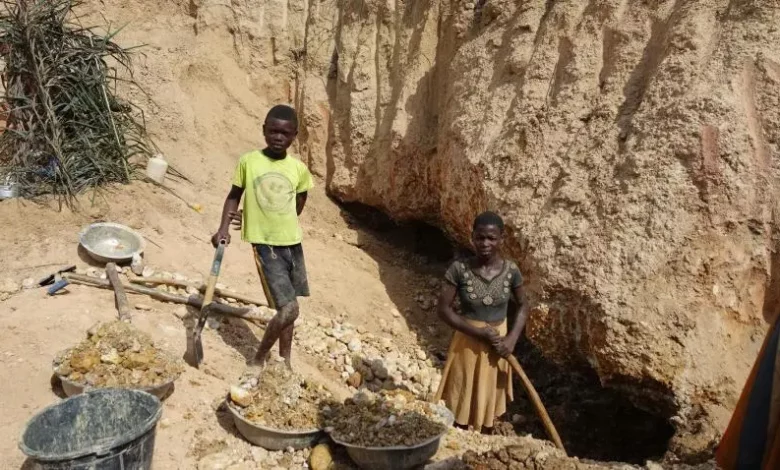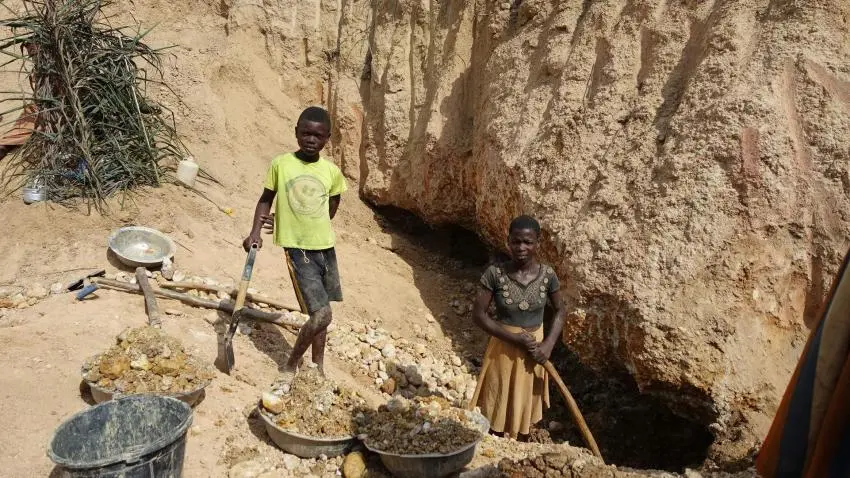

The health hazards of mining on Nigerians are a serious and urgent issue. In many parts of the country, local communities are at great risk due to the dangerous working conditions in mining sites. As well as the toxic emissions from mining operations that can contaminate nearby water sources and soil. In this post, we will explore the health risks posed by mining on Nigerians and the steps that need to be taken to protect local communities from these risks.
The Dangers of Dust
Mining operations have a major impact on the health hazards of locals in Nigerian communities. Mining operations can produce large amounts of dust, which can be hazardous to the health of those living nearby. The dust created from mining operations can contain a variety of different elements, such as silica and other heavy metals. These particles can then be inhaled by the locals, leading to respiratory problems such as asthma, bronchitis, and even lung cancer. Long-term exposure to these particles can also cause other health problems such as heart and lung diseases. In addition to this, dust from mining operations can also settle onto crops and vegetation in the area, potentially reducing their quality and yield. This can lead to reduced food availability and lower incomes for local people. Therefore, it is important for mining companies to take measures to reduce the amount of dust produced during their operations.
The Dangers of Water Contamination
When it comes to the health hazards of mining on locals in Nigerian communities, water contamination is a major concern. Mining operations can pollute local water sources with toxic chemicals and pollutants. Which can have disastrous effects on the environment and the people who rely on that water. Mining runoff can contain heavy metals, sulfuric acid, and other hazardous chemicals. All of which are highly dangerous if ingested or inhaled. These pollutants can also be washed into local streams and rivers, where they accumulate in the water and can cause devastating ecological damage. In addition to contaminating drinking water, these pollutants can also harm the health of fish, wildlife, and other organisms living in and around the affected bodies of water. It is essential for mining operations to take precautions to reduce their environmental impact, as unchecked water contamination could have dire consequences for local ecosystems and human health.
The Dangers of Air Pollution and Lung Cancer
The health hazards of mining on locals in Nigerian communities have a direct impact on air pollution. The burning of coal, oil, and gas releases toxic chemicals into the air. This leads to an increased risk of respiratory issues. The air pollution caused by mining activities can also increase the risk of lung cancer. This is especially concerning because of the limited access to healthcare and treatment in the country. In some cases, the exposure to hazardous airborne particles may even lead to death.
It is essential that communities affected by mining activities are aware of the health risks associated with air pollution. As well as what steps they can take to reduce their exposure. Taking precautionary measures such as wearing face masks when working or living near mines, minimizing outdoor activity, and investing in air filters can help to reduce the risks. Additionally, raising awareness about the dangers of air pollution and lung cancer is critical for ensuring the health and safety of the local communities.
The Dangers of Soil Erosion and Land Slides
Mining operations in Nigerian communities often result in significant soil erosion and landslides. Both of which can have serious health hazards for local populations. The loss of topsoil results in a decrease in the production of food crops, and an increase in the levels of air pollution. In addition, landslides caused by mining can cause significant damage to infrastructure and residential buildings. With consequent physical and psychological health hazards for those affected.
In some cases, land slides can result in the release of toxic substances into the air or water supply. Or a decrease in the available land for agricultural use. This can lead to an increased risk of malnutrition and hunger amongst local populations. As well as increased levels of water-borne diseases. It is therefore essential that miners in Nigeria take steps to protect the environment and to reduce the potential health hazards of mining on locals in Nigerian communities.





